If you have been recently diagnosed with OCD, your doctor may have prescribed medication as part of your treatment plan. It is important to understand what OCD medication is and how it works before starting treatment. In this article, we will discuss the different types of OCD medication available, as well as some common concerns about taking OCD medication during pregnancy. We will also provide tips on how to take OCD medication safely and effectively.
Contents
Understanding OCD Medication
OCD, or obsessive-compulsive disorder, is a mental health condition characterized by intrusive thoughts and compulsive behaviors. People with OCD may obsess about things like germs, dirt, or harm coming to themselves or loved ones. They may also feel the need to perform rituals like hand-washing or counting to relieve their anxiety. As a result, OCD can be disabling and cause a great deal of distress. Fortunately, OCD is treatable with medication, therapy, and lifestyle changes.
OCD Medication
OCD medication is used to treat OCD. It can be taken in pill form or as an injection, and it usually starts working within one week of taking the first dose. Some people find that they need to take a combination of medications for their symptoms.
Action Mechanism
OCD medication increases the amount of a neurotransmitter called serotonin in your brain. Serotonin is responsible for regulating mood, sleep, and appetite among other things; it also plays an important role in OCD by affecting how we perceive fear and anxiety. By increasing levels of this chemical messenger, antidepressants can help reduce the symptoms of OCD.
Types of OCD Medication
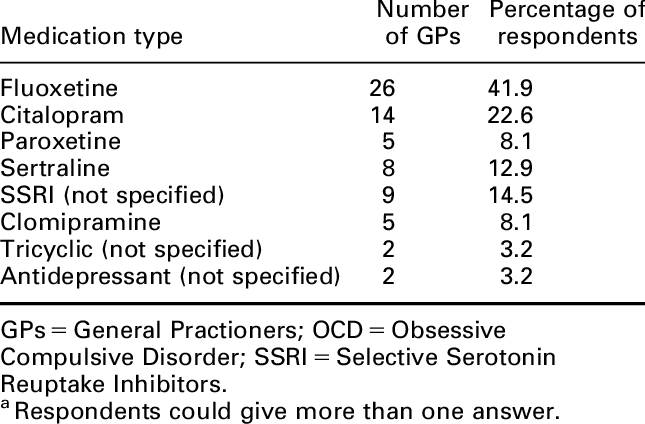
There are two main types of OCD medications: SSRIs (selective serotonin reuptake inhibitors) and SNRIs (serotonin-norepinephrine reuptake inhibitors).
- SSRIs are typically used as first-line treatment for OCD because they have fewer side effects than SNRIs.
- Some atypical antipsychotics may be helpful if you don’t respond well to other medications or if you have severe symptoms.
The most common types of OCD medication include:
SSRIs
Selective serotonin reuptake inhibitors (SSRIs) are the first-line treatment for OCD and are effective in treating both obsessive thoughts and compulsive behaviors. They work by increasing levels of serotonin, a chemical that helps regulate mood and emotions. Common SSRIs used to treat OCD include:
- fluoxetine (Prozac),
- sertraline (Zoloft),
- paroxetine (Paxil),
- citalopram (Celexa) and
- escitalopram oxalate (Lexapro)
SNRIs
Serotonin and norepinephrine reuptake inhibitors are also effective in treating OCD and work by increasing levels of both serotonin and norepinephrine. Common SNRIs used to treat OCD include:
- venlafaxine (Effexor) and
- duloxetine (Cymbalta)
Tricyclic Antidepressants
Tricyclics are less commonly used to treat OCD because they can cause more side effects and have a higher risk of overdose. However, they may be prescribed if SSRIs and SNRIs do not work well for you or cause intolerable side effects. Common tricyclics used to treat OCD include:
- clomipramine (Anafranil) and
- imipramine (Tofranil)
Monoamine Oxidase Inhibitors (MAOIs)
MAOIs are the oldest type of antidepressant and are rarely prescribed due to their risk of side effects. However, they may be prescribed if other medications do not work well for you. MAOIs work by blocking an enzyme called monoamine oxidase, which helps break down neurotransmitters like serotonin and norepinephrine. Common MAOIs used to treat OCD include:
- Isocarboxazid (Marplan),
- Phenelzine (Nardil), and
- Tranylcypromine (Parnate)
Atypical Antipsychotics
Atypical antipsychotics are a newer type of medication that is used to treat a variety of mental health conditions, including OCD. They work by blocking certain receptors in the brain called dopamine receptors. This helps reduce the symptoms of OCD by preventing overactivity in the brain. Atypical antipsychotics used to treat OCD include:
- aripiprazole (Abilify),
- olanzapine (Zyprexa),
- quetiapine (Seroquel), and
- risperidone (Risperdal)
Benzodiazepines
Benzodiazepines are a type of medication that is commonly used to treat anxiety. They work by increasing levels of a neurotransmitter called gamma-aminobutyric acid (GABA) in the brain, which helps reduce feelings of anxiety and fear. These medications are not typically prescribed for OCD because they can cause dependency and have a high risk of overdose. However, your doctor may prescribe them if your OCD is accompanied by severe anxiety. Common benzodiazepines used to treat OCD include:
Things To Discuss With My Doctor Before Taking OCD Medication
OCD medication can sometimes cause side effects, so you’ll want to know what those are before you start taking it. Before taking any type of OCD medication, it’s a good idea to ask your doctor questions about the risks and benefits. This will help you decide if taking an OCD medication is right for you. Some important things to discuss with your doctor include:
- How long will I need to take the medication?
- What are the possible side effects?
- Are there any interactions with other medications or supplements that I should be aware of?
- Can OCD medication be safely taken during pregnancy?
Specific Concerns About OCD Medication And Pregnancy
If you’re pregnant or breastfeeding, it’s important to discuss your treatment options with your doctor. While some OCD medications are safe to take during pregnancy and postpartum. However, others can cause birth defects if taken while pregnant and may be transferred via breast milk when nursing. Your doctor will help determine which medication is safest for you based on the type of OCD you have and your individual health history.
Administering OCD Medication
If you’re prescribed an OCD medication, you’ll need to take it regularly to see results. How long this takes will vary from person to person. Most people experience some improvement in symptoms within the first few weeks of starting treatment and then continue to improve over time as they continue taking their medication. If you’re prescribed an antidepressant or antipsychotic, your doctor will likely start you on a low dose and then increase it over time as needed.
How OCD Medication Is Available
OCD medication is available in several different forms. Most antidepressants and antipsychotics are available as pills that you take by mouth once or twice daily. Some OCD medications are also available as a skin patch that delivers the medication through your skin over time. Other types of OCD medications may be taken as an injection at regular intervals, such as every two weeks or once a month.
How Should I Take OCD Medication
It’s important to take OCD medication exactly as your doctor prescribes it to get the best results. If you’re prescribed an antidepressant, antipsychotic, or benzodiazepine, your doctor will likely start you on a low dose and then increase it over time as needed. OCD medication should be taken at the same time each day, preferably with food to help reduce any potential side effects.
Time It Takes For OCD Medication To Work
It can take a few weeks for OCD medication to start working properly. Most people experience some improvement in symptoms within the first few weeks of starting treatment. And then continue to improve over time as they continue taking their medication. However, if you don’t notice any improvement after four weeks, it’s important to talk with your doctor about other options that may be more effective for you.
If I Miss a Dose Or Overdose With OCD Medication
If that’s so, then it’s generally okay to take your next dose as scheduled. However, if you miss two or more doses of an antidepressant or antipsychotic, you may need to contact your doctor for further instructions on how to proceed with treatment.
If I Overdose With OCD Medication
Similarly, it’s important not to take too much of any type of OCD medication. If you overdose on an antidepressant, antipsychotic, or benzodiazepine, call your local poison control center right away.
Things Should I Avoid While Taking OCD Medication
There are a few things to avoid while taking OCD medication.
- Alcohol should be avoided when taking antidepressants and antipsychotics as it can increase the risk of side effects and make them less effective.
- It’s also important not to take any other medications without first talking with your doctor, as some types of medication may interact negatively with each other.
OCD Medication For Children And Teenagers
It’s important to note that OCD is more common in children and teenagers than many people realize. OCD affects an estimated one in every 100 children and teenagers.
If you’re a parent with a child who has been recently diagnosed with OCD, it’s important to start treatment as soon as possible. This not only can help improve your child’s quality of life but may also prevent the condition from getting worse over time.
There are a few different types of OCD medication that are FDA-approved for use in children and teenagers. Your doctor will likely start your child on a low dose of medication and then increase it over time as needed.
Evaluating OCD Medication
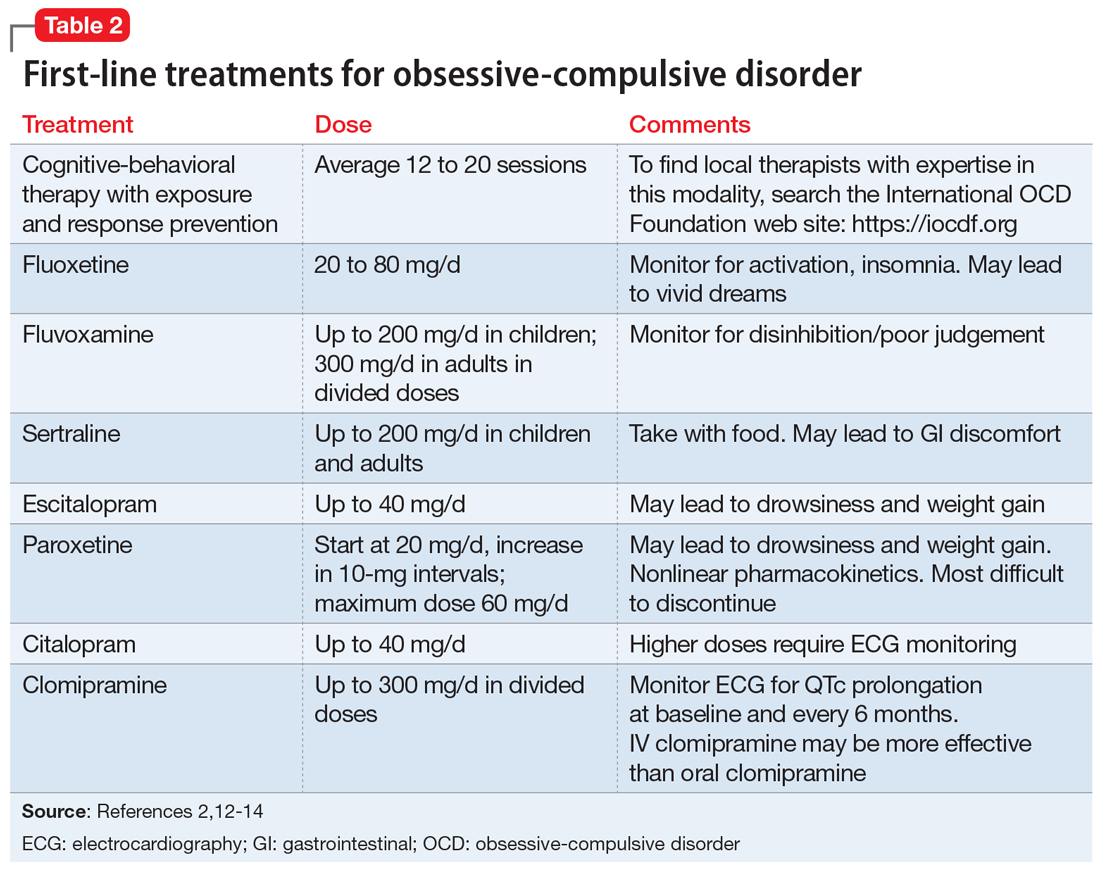
If you’ve been taking OCD medication for a while and it’s no longer helping to control your symptoms, your doctor may suggest switching to a different type of medication.
Treatment Response
Your doctor may also ask you to keep track of your symptoms using a rating scale. The most common rating scale is called the Yale-Brown Obsessive-Compulsive Scale (YBOCS). It’s a list of ten questions that you can answer to help your doctor understand how well your OCD medication is working for you. These are some examples:
- Are there any side effects from taking this medication? Are they severe?
- How much of the time during the past week were your OCD symptoms severe?
- What is the effect of medication on other areas of my life (e.g., work, social activities)?
- Has taking this medication improved my quality of life in any way?
- Are there any other problems that have developed since starting treatment (e.g., weight gain, sexual dysfunction)?
Keep in mind that the YBOCS is only one of many rating scales available to help you evaluate your treatment response. Other examples include the Hamilton Anxiety Rating Scale (HAM-A), Clinical Global Impression (CGI) scale, and others. If you’re not sure which scale is best for you, talk to your doctor about it.
NOTE: There are several different types of OCD medications available, so it’s important to work with your doctor to find the one that is best suited for you.
Possible Side-effects of OCD Medication
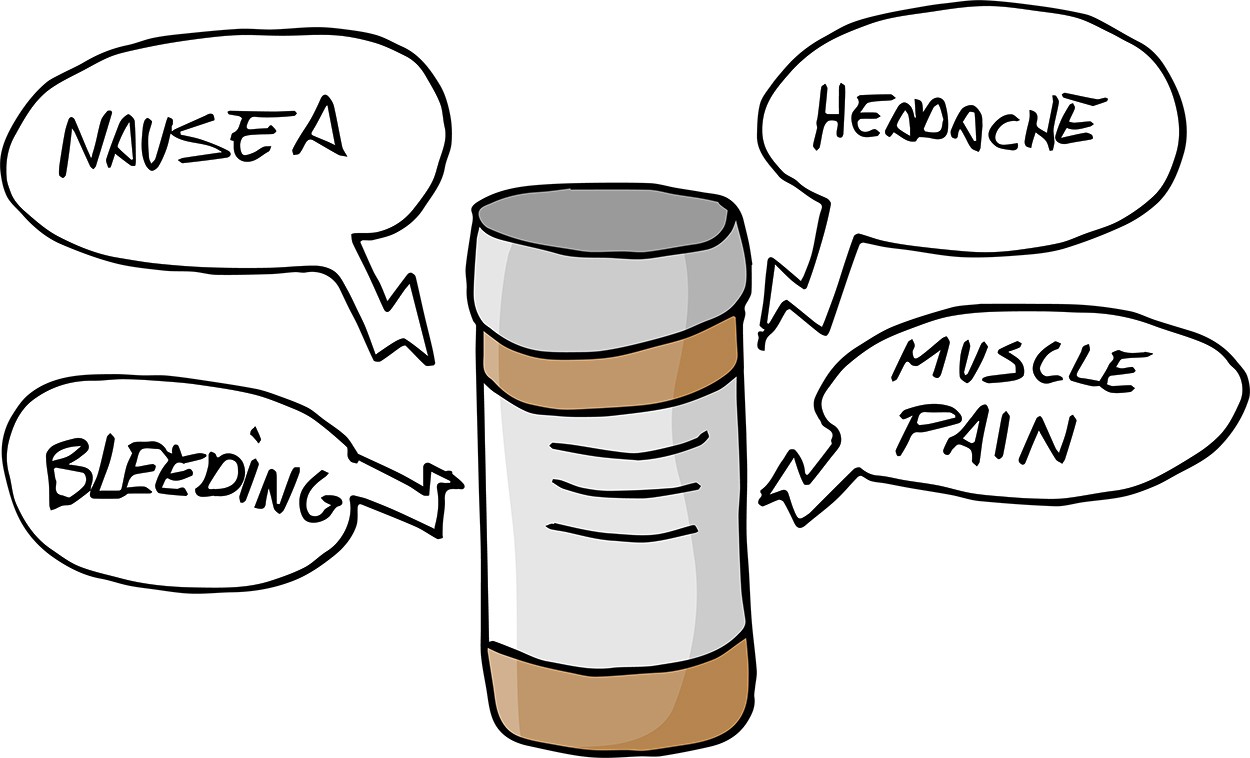
Like any medication, there are some possible side effects associated with OCD medication.
- Some people may experience mild side effects such as nausea, headache, drowsiness, or dry mouth when starting treatment. These usually go away within a few weeks.
- However, if you experience more severe side effects such as suicidal thoughts, hallucinations, seizures, or changes in mood or behavior; contact your doctor immediately.
- Some people may also experience withdrawal symptoms when they stop taking OCD medication abruptly. These can include anxiety, nausea, headaches, and sweating.
NOTE: If you want to stop taking the medication or if it’s no longer working for you, talk to your doctor first before making any changes. They will help you taper off of it slowly to avoid any withdrawal symptoms.
Risks For Taking OCD Medication For Long Periods Of Time
There are some risks associated with taking OCD medication for an extended period.
- One is that you may become dependent on the medication and need to take it for the rest of your life to control your symptoms.
- Another risk is that the medication may stop working overtime and you’ll need to switch to a different type of medication.
NOTE: If you’re worried about becoming dependent on OCD medication or want to stop taking it, talk with your doctor first before making any changes. They can help you taper off of the medication slowly so that withdrawal symptoms are less likely to occur.
Medications That May Interact With OCD Medication
Several medications may interact with OCD medication and cause unwanted side effects. . Some of these include:
- Birth control pills,
- Anti-anxiety medications,
- Sleeping pills, and
- Antidepressants
It’s important to tell your doctor about all the medications you’re taking (including over-the-counter drugs and supplements) before starting treatment with OCD medication Your doctor can help you avoid any potential problems by making sure that all of your medications are safe to take together.
Alternatives To OCD Medication
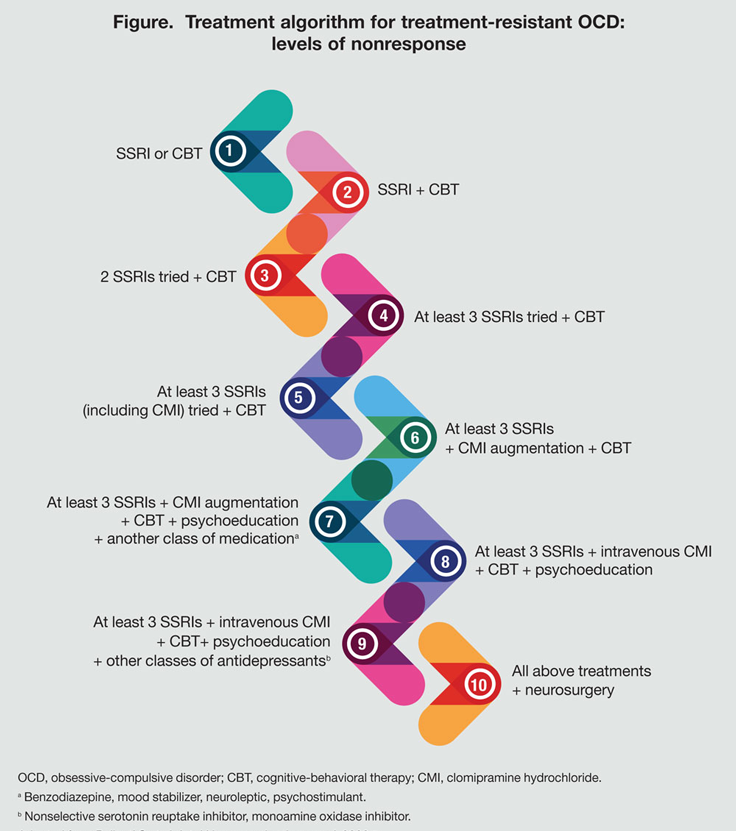
If you’ve tried taking OCD medication for several months but aren’t seeing any improvements in your symptoms, don’t lose hope! There are other options available that might work better for you. Some alternatives include lifestyle changes like:
- Exercising regularly,
- Eating a healthy diet, and
- Getting enough sleep each night
Several therapies may be helpful in addition to your medication such as:
- Cognitive-behavioral therapy (CBT)
- Exposure and response prevention (ERP)
- Electrical brain stimulation therapy
- Yoga or tai chi, and
- Relaxation techniques such as mindfulness meditation or Deep breathing exercises
These types of therapy help you challenge the thoughts and beliefs that lead you to have OCD symptoms.
NOTE: Your doctor may want to try a different type of medication, or they may recommend trying therapy without any medications at all. If you’re interested in trying one of these therapies, talk to your doctor about finding a therapist who specializes in treating OCD. Whatever you do, don’t give up on getting help! With the right treatment, you’ll be able to control your OCD symptoms and live a happier, healthier life.
Experts’ Opinion About OCD Medication
Some experts believe that medication is an important part of treating OCD. They say that it can help you get relief from symptoms while you work on changing your thoughts and behaviors through therapy.
Other experts disagree with this view, arguing that medications alone aren’t enough to treat OCD because they don’t address the root cause of your problem. They recommend using therapy without any medications as a way to get lasting results from treatment.
Case Study
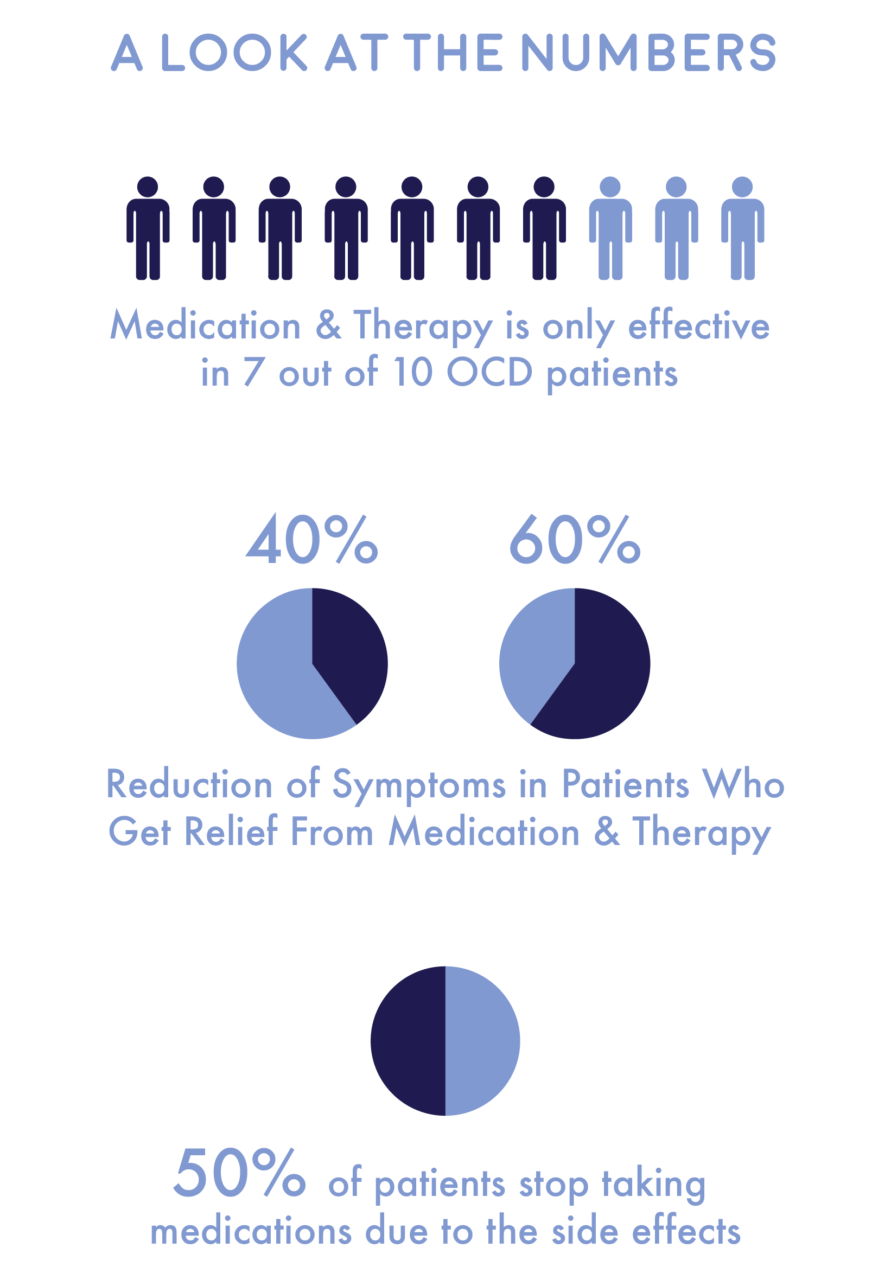
Sally was a young woman who suffered from OCD. She visited her doctor because she had been experiencing intrusive thoughts about harming herself or others for several months now.
Her doctor prescribed an SSRI to help control these thoughts, but after taking it for six weeks without any improvement in symptoms she decided that medication wasn’t the right treatment for her.
Sally decided to try cognitive-behavioral therapy (CBT) instead, and after a few months of weekly sessions, she was able to get her intrusive thoughts under control.
The Key Message
While medication may not be the right choice for everyone with OCD, it can be an effective way to help relieve your symptoms in the short term. Talk to your doctor to see if it’s the right treatment for you.
Conclusion
OCD medication can be an effective treatment for some people with OCD. However, there are many other options out there if it doesn’t work well enough or cause undesirable side effects in you. Talk to your doctor about what will work best for you!
A Word From Therapy Mantra
Your mental health — Your psychological, emotional, and social well-being — has an impact on every aspect of your life. Positive mental health essentially allows you to effectively deal with life’s everyday challenges.
At TherapyMantra, we have a team of therapists who provide affordable online therapy to assist you with issues such as depression, anxiety, stress, workplace Issues, addiction, relationship, OCD, LGBTQ, and PTSD. You can book a free therapy or download our free Android or iOS app.


